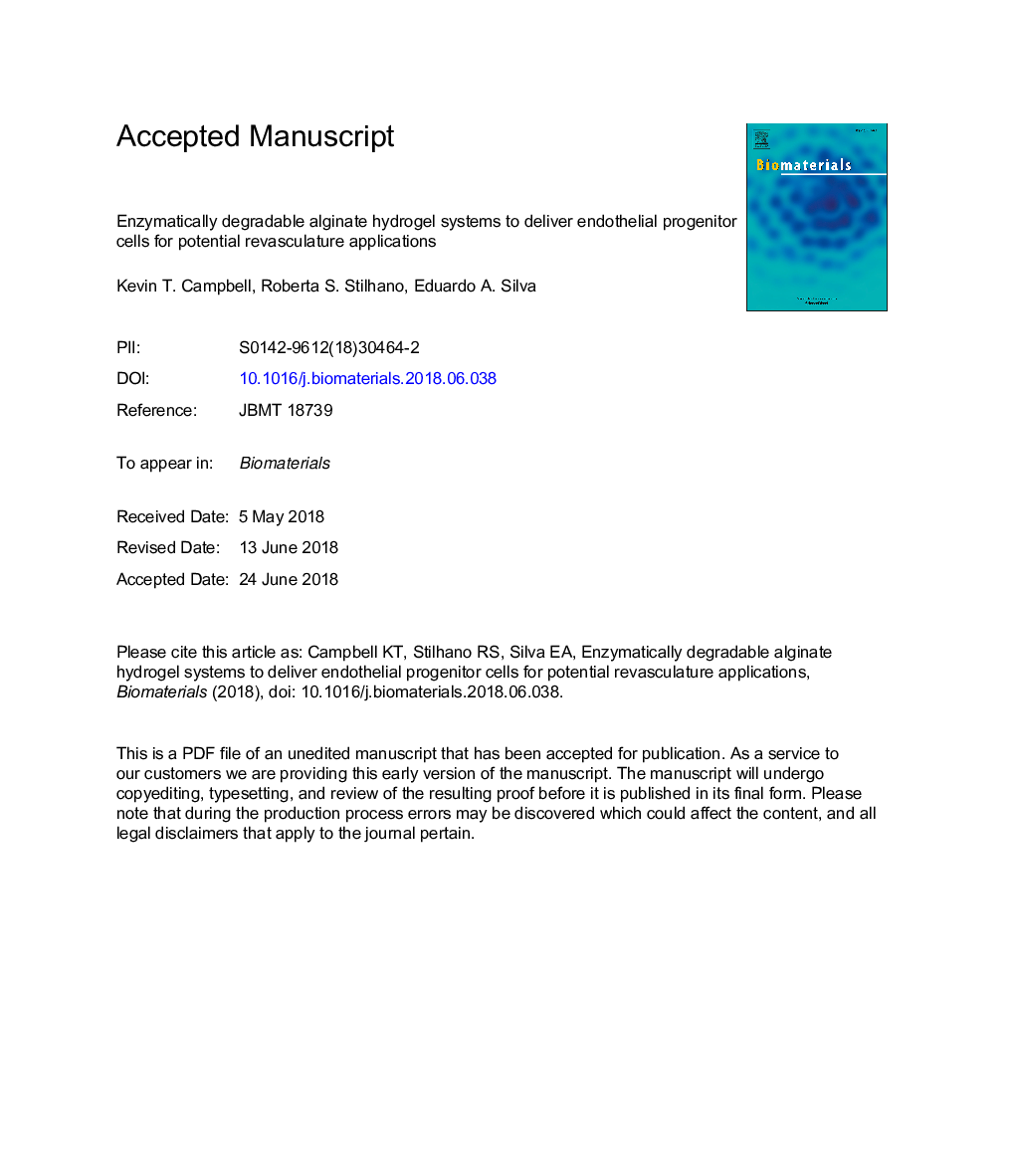| Article ID | Journal | Published Year | Pages | File Type |
|---|---|---|---|---|
| 6484348 | Biomaterials | 2018 | 51 Pages |
Abstract
The objective of this study was to design an injectable biomaterial system that becomes porous in situ to deliver and control vascular progenitor cell release. Alginate hydrogels were loaded with outgrowth endothelial cells (OECs) and alginate lyase, an enzyme which cleaves alginate polymer chains. We postulated and confirmed that higher alginate lyase concentrations mediated loss of hydrogel mechanical properties. Hydrogels incorporating 5 and 50 mU/mL of alginate lyase experienced approximately 28% and 57% loss of mass as well as 81% and 91% reduction in storage modulus respectively after a week. Additionally, computational methods and mechanical analysis revealed that hydrogels with alginate lyase significantly increased in mesh size over time. Furthermore, alginate lyase was not found to inhibit OEC proliferation, viability or sprouting potential. Finally, alginate hydrogels incorporating OECs and alginate lyase promoted up to nearly a 10 fold increase in OEC migration in vitro than nondegradable hydrogels over the course of a week and increased functional vasculature in vivo via a chick chorioallantoic membrane (CAM) assay. Overall, these findings demonstrate that alginate lyase incorporated hydrogels can provide a simple and robust system to promote controlled outward cell migration into native tissue for potential therapeutic revascularization applications.
Related Topics
Physical Sciences and Engineering
Chemical Engineering
Bioengineering
Authors
Kevin T. Campbell, Roberta S. Stilhano, Eduardo A. Silva,
